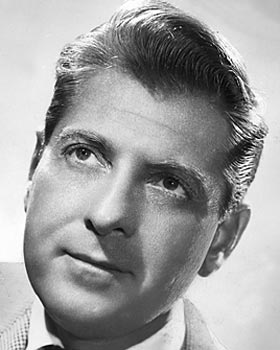This is a bit of a departure, but bear with me. Yesterday, I wanted to add some “stereotypical travel” music to a video I was editing on Final Cut Pro–something along the lines of 50s-TV incidental music (or the background to a 90s Ren and Stimpy cartoon). A long, twisty search engine path took me to this, and it is perfect:
It just screams idyllic 50s suburban neighborhood, at least in my head, even though it was written in the mid-40s.

Do you know this man? I didn’t.
That’s “Holiday for Strings” by David Rose and, if you spent any time in the 20th Century, I’m you’ve heard it a thousand times in many incarnations (including my favorite flavor, Spike Jones). I did a little searching into David Rose, and what I found blew away my pop-cultural sensibilities.
I’ll spare you the Wikipedia copypasta about Rose’s life, except to mention that he was married to both Martha Ray and Judy Garland, and had a long, productive career. (His granddaughter makes the sort of unremarkable technopop that seems to dominate nowadays.)
Rose has a place in pop culture legend for “Holiday for Strings” alone, but I was floored when I heard he also wrote a good number of familiar TV themes, with a particular fondness for Michael Landon projects. He wrote the themes for Little House on the Prairie, Highway to Heaven and, most importantly:
Each theme is different, yet you can sense the genetic connection.
Now, here’s what really floored me. “Holiday for Strings” is one of those “Oh yeah, that song” type affairs, but nothing compares to this David Rose classic:
I mean, really. What are the chances that one guy wrote “Holiday for Strings,” “Bonanza,” AND “The Stripper.”
Mind=blown.
Any joker can whistle a phrase from “The Stripper” in the workplace and instantly warrant a written warning from Human Resources. That’s how much influence David Rose has had on your life. I salute you, my previously anonymous, long-since-dead friend.